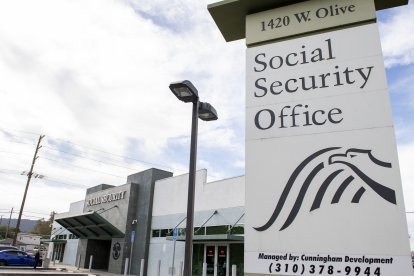Biden Signs Bipartisan Social Security Fairness Act into Law
The rule increases benefits for millions of public employees and their families. Critics claim it imposes new spending without proposing new funding streams, increasing the budget deficit.

California Office of the Social Security Administration
President Joe Biden signed into law a proposal to extend Social Security benefits to nearly 3 million retirees. The measure had passed with a bipartisan majority in both the House and Senate, with four wayward votes in the Democratic Party and 91 in the Republican Party.
The Social Security Fairness Act repeals two stipulations that limited benefits to certain public employees: the Windfall Elimination Provision (WEP) and the Government Pension Offset (GPO). The repeal of both, Biden detailed, will mean an average monthly increase of $360 for more than 2.5 million beneficiaries, plus extra income retroactive to 2024.
While the WEP reduced benefits to workers who had not had taxes withheld from their wages and were receiving a retirement or disability pension; the GPO covered family members, reducing benefits to spouses, widows or widowers who were already receiving public pensions of their own, according to the legislative text.
"Today, this 40-year injustice has ended. No longer will our hardworking public servants have money stolen out of their Social Security benefits every month," celebrated President of the Fraternal Order of Police (FOP) Patrick Yoes. Police officers are, along with firefighters and teachers, among those benefiting from the rule.
After thanking his affiliates and Biden, Yoes did not forget Donald Trump: "We also have President-elect Trump to thank today. Without his strong and timely endorsement of the bill, I do not think we would have had enough votes to pass the Senate."
"This is a win for fairness and for those who have dedicated their lives to serving their communities," wrote, for her part, Republican Senator Susan Collins, who introduced the bill in the Senate along with her then-still Democratic counterpart Sherrod Brown.
"I have fought for this change since 2003, when I held the first-ever Senate hearing on repealing the WEP and GPO, and I am proud that this law will ensure public service no longer comes at the expense of the retirement benefits earned by an individual or their spouse."
Criticism
Criticisms of the law center on the effect it could have on the budget deficit. The Congressional Budget Office estimated that it could widen the federal coffers' deficit by $195 billion over a decade.
"It speeds the bankruptcy of Social Security," warned Republican Rand Paul, one of 20 GOP senators who voted against it. It would move up the bankruptcy scheduled for 2034, he told The Hill, by about a year. He further protested that the project sought to expand profits but not the program's funding sources. "If we give new people more money, we have to take it from somewhere. We have to either borrow it or print it, but it has to come from somewhere."
John Larson, a Connecticut Democrat, expressed similar reservations. While he criticized the current system, calling the WEP and GPO "unjust," he stressed that reform must be "responsibly paid for to prevent automatic benefit cuts down the road." He sealed this opinion with a "no" vote in the House.
Harsher was Tom Margenau, an expert on the Social Security Administration who served in its ranks for more than 30 years: "Congress just passed a law that will give me (and millions of people like me) extra Social Security benefits that we simply do not deserve and haven’t earned," he opined in a column for The Epoch Times in late December.
The abolished provisions, he argued, served to eliminate "unintentional" and "overly generous benefits." Their purpose was to assess a citizen's actual situation throughout his or her working life in public jobs and his or her current economic situation. Eliminating them, therefore, would generate new inequities.
"Almost all of you reading this column cannot collect your own Social Security retirement check and at the same time get some extra benefits from your spouse’s account," he added: "But now I and other government pensioners will do just that."
RECOMMENDATION






















